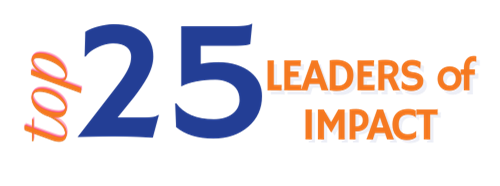This article is part of a series focused on bringing you insights from experienced and successful professionals about what they’ve learned and how they are adapting to the current business climate.
Suri Surinder
President of DMBA Consulting
Chief Operating Officer, ALPFA Institute
V Porfano: What characteristics, skills or abilities have you developed that help make you successful as a leader?
SS: Over the course of my career, and especially as a leader, I have found that there are three things I’ve relied on IQ (Intelligence Quotient), EQ (Emotional Quotient), and XQ (Execution Quotient). Developing IQ has enabled me to develop thought leadership by acquiring intellectual resources and expanding my competence. Leaders who are experts in their field or industry can bring that knowledge to bear in how they craft the vision and strategy for their teams. In each role I have had, I have taken the time to listen and learn, and build my body of knowledge in the industries I have worked. Leaders who command respect from their teams have built up breadth and depth of expertise, and they will always have an edge. Developing EQ has enabled me to build people leadership through cultivating relationships and demonstrating character. It is manifest in how you treat your employees, and results in the currency of trust. The way I have approached leadership has been to always be authentic, humble, balanced, and fair, and to stay true to who I am. Developing XQ leads to results leadership through the delivery of outstanding results and building capabilities such as motivating, inspiring, and executing. I have always believed that delivering results is a key part of who I am as a leader, and generates credibility. A good leader inspires his team to believe in the direction they are taking and motivates them to perform at high levels and to achieve great results.
V Porfano: Given that many corporations are now recovering from the economic meltdown, what leadership challenges are taking center stage today?
SS: On the thought leadership front, when times get tough, it’s very easy for leaders to become introspective. The right approach is to look outwards to your customers, competitors, and market. We must help our employees see the path and guide them using a clear vision, strategy, and communications. On many levels it’s also about leveraging good data and combining it with great leadership insight to see market opportunities others might miss On the people leadership front, it’s about attracting, retaining, and inspiring the best talent in a market that is very conducive to talent acquisition right now. You need to be able to create an environment that results in a great employee experience that enables employees to grow, flourish, and reach their full potential. On the results leadership front, companies need to deliver tangible and distinctive outcomes for customers and shareholders through superior customer experience and advocacy. The companies that win are those that are able to truly connect with customers and deliver a differentiated product or service.
V Porfano: What experiences in your career best positioned or prepared you for a global leadership role?
SS: I’ve worked in telecommunications, consulting, healthcare, academia, and financial services. I’ve even worked as a cab driver in New York City. I think there are three distinct roles that have enhanced my career and made me a better leader. Strategy and analysis roles have required me to think through how to maximize value for the business, and identify hidden value pockets in the sea of market data, which has improved my thought leadership because of the market insight I’ve gained. Large-team management roles have required me to lead and interact with different people from different backgrounds, and influence them to act in a way that leverages their skills and talents the best and benefits the business. These types of roles have built my people leadership skills. P&L roles that come with accountability to deliver on clear revenue, expense, income, and customer satisfaction targets in a balanced, consistent fashion quarter after quarter have helped me develop results leadership skills.
V Porfano: Did you take risks in your career? If so, what type of risks and how did they prepare you for the unexpected?
SS: I’ve had to develop and execute strategies that run counter to conventional wisdom, but exploit value pockets in the market based on rigorous analysis and judgment. You have to take a certain amount of calculated risk and go where no one has gone before. You may not know what you’ll find, but you’ll often be the first one to market. I have also taken people leadership risks. I have had to step out of my comfort zone on a number of occasions and open up to my employees. I believe in being as authentic and genuine as possible and in general I think people really appreciate that. I’ve told stories of how I’ve failed and about what I’ve learned from the experience. Being vulnerable and open takes courage, but it pays dividends in your ability to connect with people and lead. I have also taken results leadership risks. I’ve stepped out into the unknown and signed up for seemingly unachievable goals. I love the challenge of doing what seems to be impossible. I’ve then had to dig deep and do everything I can to get my team to achieve the goals set. Getting your team energized in a positive way around audacious goals is what we’re paid to do as leaders.
Articles in the Experiences And Insights Series
- Experiences And Insights From Sami Miettinen
- Experiences And Insights from Cynthia Young
- Experiences And Insights from Suri Surinder
- Experiences And Insights From Cedric Thurman
- Experiences And Insights From Clara Wong
- Experiences And Insights From Mariano Legaz
Updated 2/10/2013: Added Suri Surinder’s photo.








